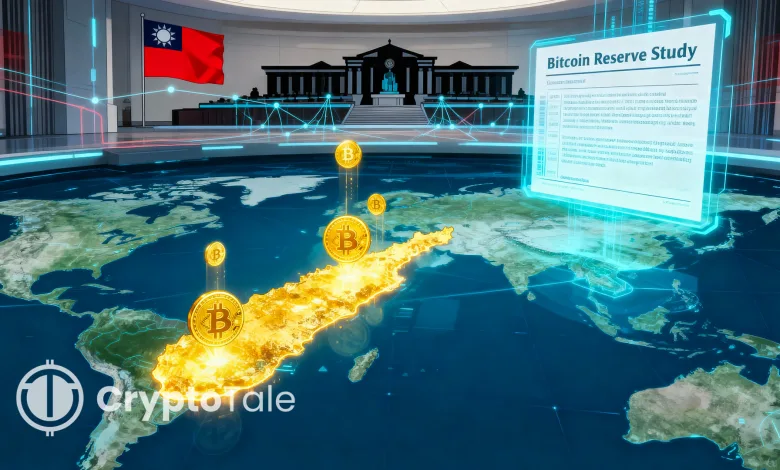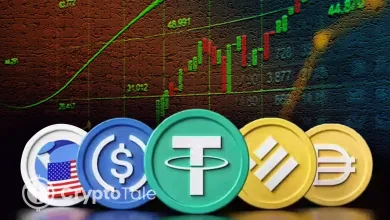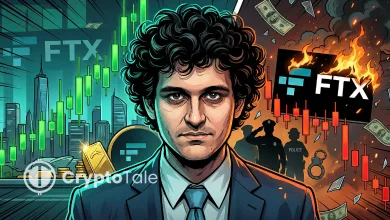Taiwan Weighs Bitcoin Reserve Shift in Bold National Study

- Taiwan leaders begin a study that explores Bitcoin use within reserve planning steps.
- Dr. Ju Chun Ko calls for a Bitcoin review after sharp New Taiwan Dollar swings this year.
- A fraud case involving fake crypto storefronts sparks demand for tighter oversight.
Taiwan’s Premier and Central Bank agreed to study Bitcoin as a strategic reserve and prepare draft regulations while exploring a pilot program that uses seized Bitcoin awaiting auction. Lawmaker Dr. Ju-chun Ko leads the initiative, and Samson Mow, CEO of JAN3, supports the effort as public discussions grow about Taiwan’s dependence on traditional reserve assets.
The plan gained momentum after Ko urged the Central Bank in May to evaluate Bitcoin for national reserves due to New Taiwan Dollar volatility, global inflation, and rising geopolitical risks.
Growing Push for a Strategic Reserve Shift
Dr. Ko raised concerns about sharp swings in the New Taiwan Dollar. The currency moved by 5% in single sessions this year. He stated that the country needs stronger financial resilience. He noted that Taiwan relies heavily on the U.S. dollar for reserve protection. He also pointed to global inflation as another pressure point.
Consequently, Ko argued that Bitcoin could support a diversified national strategy. He said Bitcoin should complement existing holdings rather than replace them. Taiwan currently holds $577 billion in foreign exchange reserves. About 92% is in U.S. Treasury bonds. Taiwan also holds 423 metric tonnes of gold.
Ko warned that this concentration creates vulnerability during external shocks. He also linked these risks to ongoing regional tensions. Therefore, he proposed a Bitcoin pilot that uses confiscated Bitcoin while regulators complete broader studies. Mow backed Ko’s proposal and called the study a step toward long-term economic strength.
Ko referenced decisions by other nations during a May session of the Legislative Yuan. He said Taiwan must track global monetary changes. He also noted that the United States created a Strategic Bitcoin Reserve in March 2025. President Donald Trump signed an executive order establishing the reserve with about $17 billion in forfeited Bitcoin.
Regional and Global Context Shapes Taiwan’s Debate
El Salvador and Argentina developed national Bitcoin frameworks in earlier years. Both governments linked their decisions to inflation risks and financial instability. Their experience shaped Ko’s argument during legislative debates. He said Taiwan cannot ignore ongoing global monetary shifts.
He warned that reliance on dollar-denominated assets reduces flexibility during economic stress. Taiwan’s Financial Supervisory Commission also allowed professional investors to buy foreign Bitcoin and crypto exchange-traded funds in 2024. This marked a meaningful shift in the island’s regulatory approach. The change created new legal routes for institutional crypto access. It also prepared the ground for future market regulation.
Taiwan’s growing crypto demand accelerated calls for updated financial oversight. At the same time, the country faces major enforcement challenges. Prosecutors indicted 14 people in August for running an NT$2.3 billion fraud scheme. The group used fake crypto exchange franchises under names like CoinW and BiXiang Technology.
They opened more than 40 storefronts across Taiwan. They claimed fake approval from the Financial Supervisory Commission. Operators collected fees and used deposit machines to imitate legitimate exchange functions.
Fraud Case Exposes Regulatory Gaps
Investigators reported that over 1,500 victims lost money through the operation. Funds moved to offshore crypto accounts once collected. Police seized cash, digital assets, and luxury goods worth more than NT$100 million. Ringleader Shi Qiren now faces up to 25 years for fraud, organized crime, and money laundering.
Related: Trump and Xi Trim Tariffs, Crypto Market Reacts
Prosecutors said the scheme used regulatory gaps to target inexperienced investors. They also linked the crime to Taiwan’s fast-growing interest in digital assets. The Central Bank’s assessment is forthcoming; hence, government officials are keeping an eye on the market conditions. Discussions between the legislators about Bitcoin’s role in long-term fiscal planning have not concluded. Proponents believe the trial project will provide preliminary data for the future.




